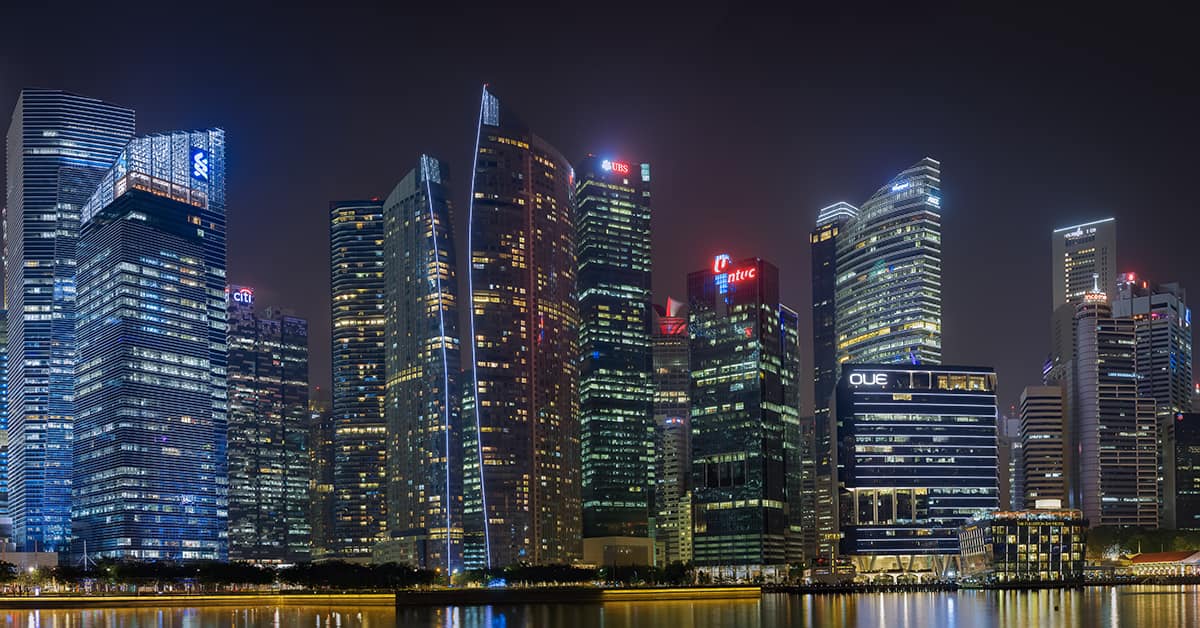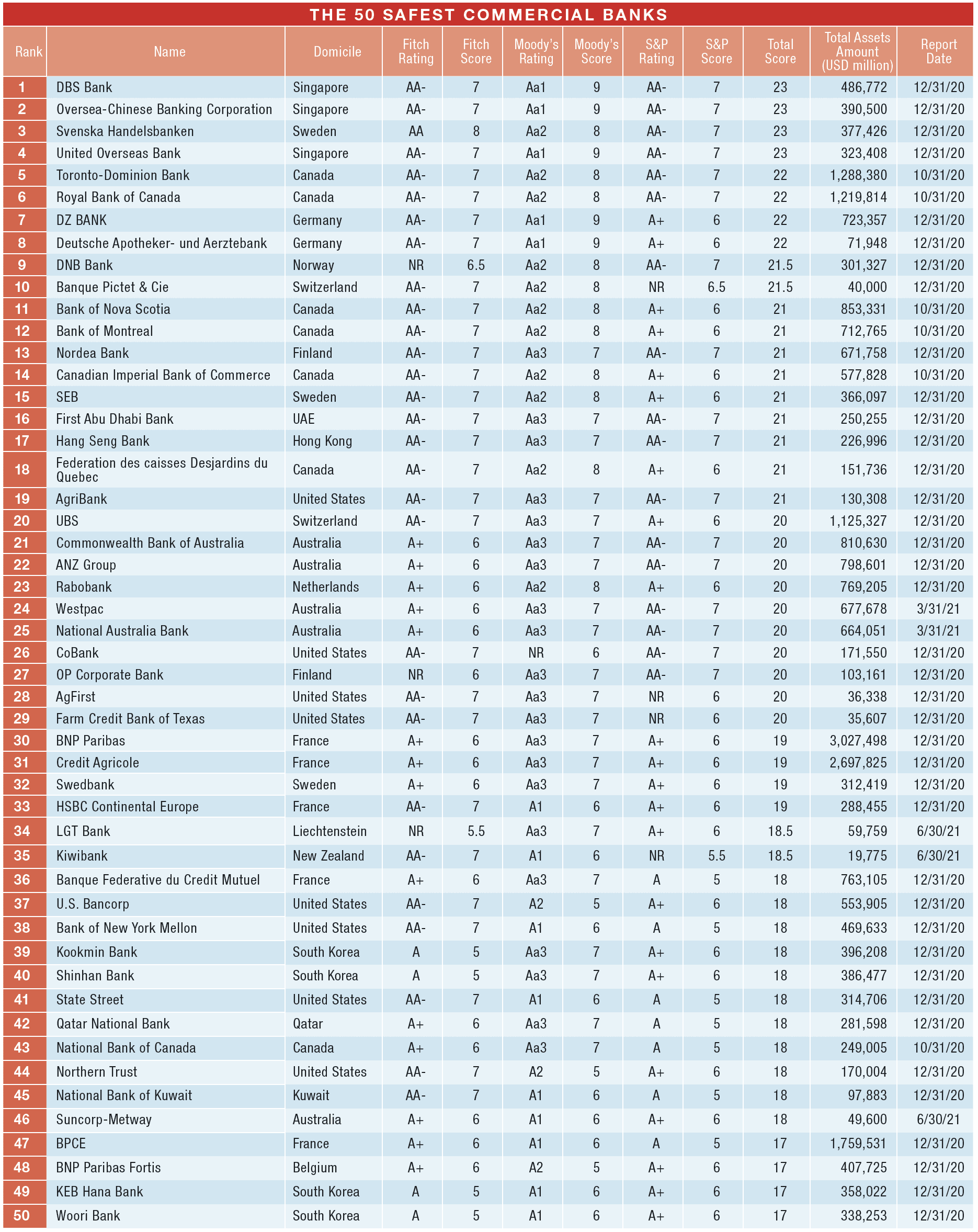Global Finance names this year’s 50 safest commercial banks in the world.

For commercial banks, effectively conducting business amid the ongoing pandemic continues to require strong executive leadership and heightened operational execution across the organization. This involves greater reliance on bank employees to develop more innovative digital products and applications, and to create efficiencies to reduce costs and boost profitability.
Accordingly, the sector’s response during the pandemic is viewed as a significant inflection point, where banks were forced to quickly alter global strategy, reengineer business models and implement flexible employee work arrangements to maintain and expand their franchise. Once thought of as temporary, these new strategies and alterations are becoming permanent as the pandemic continues. This year’s rankings of the 50 Safest Commercial Banks provide some valuable insight to how effective these institutions were in response to the challenges from the pandemic.
Singapore Stands Out
Most notably, Singapore dominates the top five as three of its banks moved up: DBS Bank (No. 1), Oversea-Chinese Banking Corporation (No. 2) and United Overseas Bank (No. 4). These institutions demonstrated solid ratings stability due to sdiverse business models and strong market positions in a relatively small domestic banking market. Additionally, their broader reach in the Asia Pacific region and globally will allow them to capture more business, particularly related to global trade finance.
Not all banks and banking markets have adapted so well. For Germany’s DZ Bank, S&P’s June 2021 downgrade reflected the agency’s assessment that the pandemic had exacerbated challenges facing DZ Bank and the German banking sector. S&P concluded that “German banks are now less competitive relative to global peers due to slow progress improving revenue diversification, cost structures and digitalization.”
For other institutions as well, rating downgrades were a reflection of broader concerns regarding a country’s banking sector. Recognizing a more difficult operating environment in Canada, Fitch downgraded its Canadian operating environment assessment to AA- from AA. Royal Bank of Canada was downgraded to be in line with this threshold. National Bank of Kuwait also took a hit after Moody’s downgraded the sovereign to A1, citing liquidity risks and weakening governance.
Yet other rating hits were more technical: Toronto-Dominion’s downgrade owes to a change in Moody’s methodology that increased loss assumptions under a bank-resolution scenario.
HSBC continues to target significant reductions by 2022 in costs and risk-weighted assets in its European banking operations and its global banking and markets division. This includes the firm’s French retail banking franchise, HSBC Continental Europe (formerly HSBC France), which Moody’s downgraded in early June due in part to consistent losses and deteriorating capital levels exacerbated by the pandemic. The bank fell to No. 33 in our ranking this year. Subsequently, HSBC announced the sale of these operations to private equity firm Cerberus Capital Management later in June.
U.S. Bancorp slid after it was downgraded by Moody’s to A2 from A1 in July 2021 based on the agency’s revised profitability and capitalization outlook for the bank. French institution BPCE fell 10 places following S&P’s downgrade to A from A+ on weakness in profitability and expense efficiency.
Downgrades open doors to new entrants, and this year two South Korean banks benefited: KEB Hana Bank and Woori Bank. KEB Hana Bank was upgraded by Fitch to A on expectations of higher government support, while S&P gave Woori Bank a boost to A+ for strengthened risk management shown in its improving asset quality metrics versus domestic peers. These entries doubled South Korea’s representation among our Safest Commercial Banks to four, joining Kookmin Bank (No. 39) and Shinhan Bank (No. 40).
Methodology: Behind the Rankings
Under the methodology for the Global Finance World’s Safest Banks rankings, commercial banks that are majority state-owned or receive sponsorship from their governments or regional bodies are excluded. Institutions here don’t benefit from government backing. Additionally, institutions that are wholly owned by their parent company are ineligible. Accordingly, Natixis (parent, Group BPCE) and Credit Industriel et Commercial (parent, Banque Federative du Credit Mutuel) are excluded from this year’s rankings.




